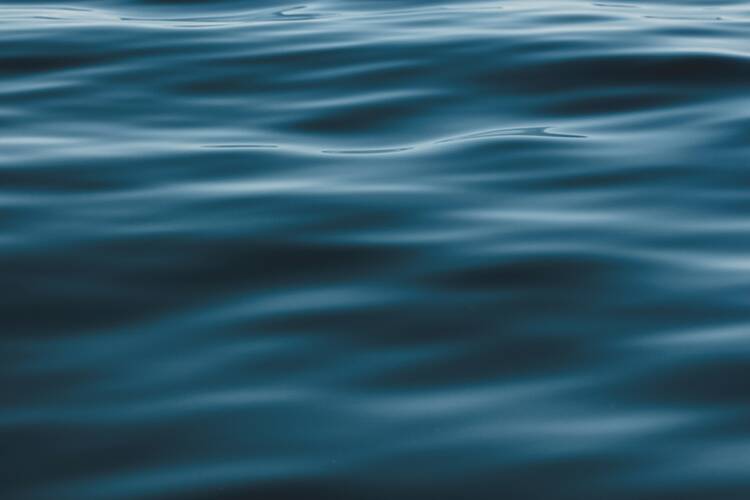A Reflection for Tuesday of the Eighteenth Week in Ordinary Time
Find today’s readings here.
During the fourth watch of the night,
he came toward them, walking on the sea.
When the disciples saw him walking on the sea they were terrified.
“It is a ghost,” they said, and they cried out in fear.
At once Jesus spoke to them, “Take courage, it is I; do not be afraid.”
Peter said to him in reply,
“Lord, if it is you, command me to come to you on the water.”
He said, “Come.”
Peter got out of the boat and began to walk on the water toward Jesus.
But when he saw how strong the wind was he became frightened;
and, beginning to sink, he cried out, “Lord, save me!”
Immediately Jesus stretched out his hand and caught him,
and said to him, “O you of little faith, why did you doubt?” (Mt 14:25-31)
In these late days of summer, I’m spending some time with family in New England where I grew up. Being here at this time of year is almost synonymous, in my mind, with being by the water. On a beautiful day, a walk by the ocean is just about the most peaceful thing I can imagine—and the most mesmerizing.
Water’s movement is a stunning reminder of the power of nature. In today’s Gospel reading from Matthew, Peter and the disciples are appropriately stunned when Jesus walks on water, demonstrating a power greater than the forces of nature. In the face of someone stronger than what he had perhaps previously believed was the natural world’s greatest strength, Peter hovers on the line between great faith and great doubt.
It’s a Gospel story most of us have probably heard many times. While revisiting it in preparation for this reflection, what struck me anew was this: When Peter wavers, when he doubts that Jesus will keep him above water (literally) as he goes toward him, he has already seen the great miracle. He’s not being asked to believe in divine power without already seeing proof of its magnificence before his very eyes. So why is his faith still imperfect?
Even those of us who say we believe in God, who can point to the presence of divinity in our own lives, waver like Peter. Maybe it’s not God, not Christ, that we doubt; it’s ourselves—and the idea that we could ever be so connected to God as to participate in or benefit from the power of divinity.
Peter looks at Jesus and wants to know if the grandeur he sees is too good to be true. He’s the one who asks Jesus to command him to walk on water too. But to Peter’s credit, even when the power of the water and wind frighten him as he’d mid-walk, he cries out to Jesus and hopes he will be a savior.
In our daily lives, we can observe the places where our doubt in God and our doubt in ourselves (and our doubt in the relationship between) intersect. Today, notice if there’s a moment when you catch yourself feeling Peter’s fear. Cry out to God and then ask yourself the question he would ask: “O you of little faith, why did you doubt?”








